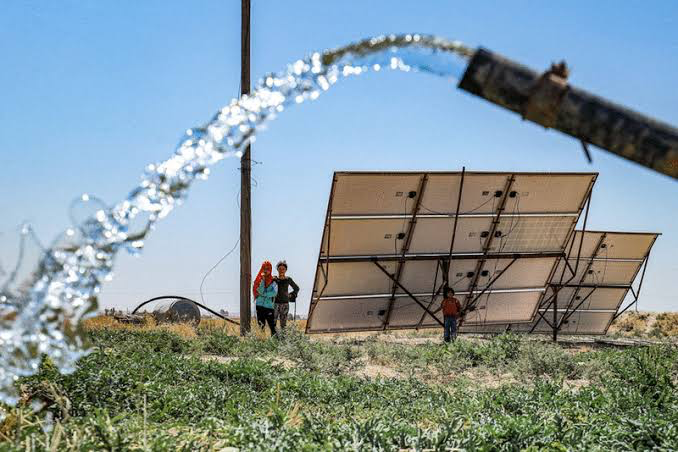A transformative $12 million agreement is set to revolutionize agriculture in drought-stricken sub-Saharan Africa by scaling up the implementation of solar irrigation, integrated with cutting-edge Internet-of-Things (IoT) technology. This initiative promises to bring a wave of change for hundreds of thousands of small-scale farmers across the region, introducing them to a more sustainable and efficient method of farming.
Traditionally, the agricultural landscape in sub-Saharan Africa has been dominated by rainfed farming techniques or the reliance on carbon-intensive diesel or petrol irrigation pumps. This new venture, however, aims to introduce solar-powered irrigation pumps as a greener and more sustainable alternative. These pumps not only address the pressing challenges of energy security and water access but also contribute significantly to enhancing climate resilience in an area frequently battered by the adverse effects of climate change.
The solar irrigation systems, capable of pumping up to 1,200 liters of water per hour, are designed specifically for smallholdings ranging from 1-3 acres. Equipped with solar PV systems that include features like sprinklers, drip irrigation, and battery storage, these setups aim to optimize water usage efficiency. By adopting such climate-resilient technology, farmers are offered a viable solution to counter the variability of rainfall induced by climate change, eliminating the dependence on costly and polluting fuel-based pumps.
The African continent continues to face severe challenges due to ongoing climate crises. Notable among these is the declaration by Zimbabwe’s President Emmerson Mnangagwa on April 3, 2024, labeling the country’s persistent drought as a national disaster. With Zimbabwe requiring over $2 billion to mitigate the hunger crisis affecting millions, the introduction of solar-powered irrigation systems emerges as a critical component in the adaptation strategies for farmers facing climate variability. Similarly, Botswana’s President Mokgweetsi Masisi declared the 2022/2023 season a severe agricultural drought year, underscoring the urgency for sustainable farming solutions across the continent.
This groundbreaking project, a collaboration between InfraCo Africa and the Savant Group, encompasses the design, manufacturing, financing, installation, and maintenance of comprehensive solar irrigation systems. These systems, powered by safe, low-voltage DC pumps, represent a significant portion of an oversubscribed $27.5 million fund aimed at delivering solar-powered irrigation enabled by IoT technology to hundreds of thousands of smallholder farmers by 2030.
The innovative “Pay-As-You-Grow” model of the irrigation system allows farmers to irrigate their lands efficiently during optimal times, such as early mornings, and direct water precisely where it’s needed most, minimizing waste. Additionally, the IoT-enabled systems facilitate remote monitoring and predictive maintenance, further enhancing their appeal. The inclusion of battery systems not only supports agricultural activities but also provides domestic lighting solutions and the capability to charge small devices, like mobile phones, thereby contributing to the overall improvement of living standards for the farming communities.
This initiative is poised to create a significant impact by empowering small-scale farmers in sub-Saharan Africa with the tools and technologies needed to thrive in an increasingly unpredictable climate. By leveraging solar power and IoT technology, it sets a precedent for sustainable agriculture that could potentially reshape the future of farming in the region, offering a beacon of hope and resilience against the backdrop of climate adversity.
Source: ESI Africa



